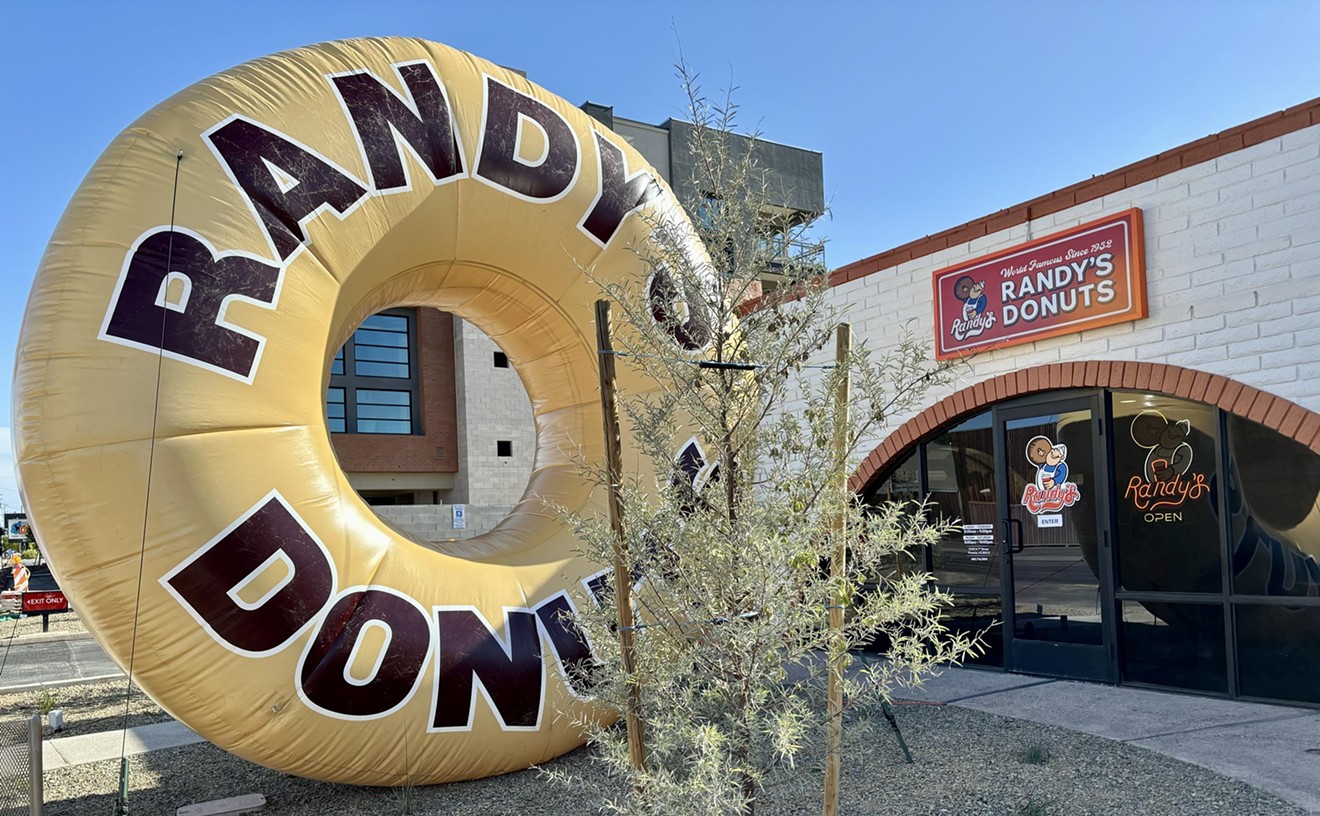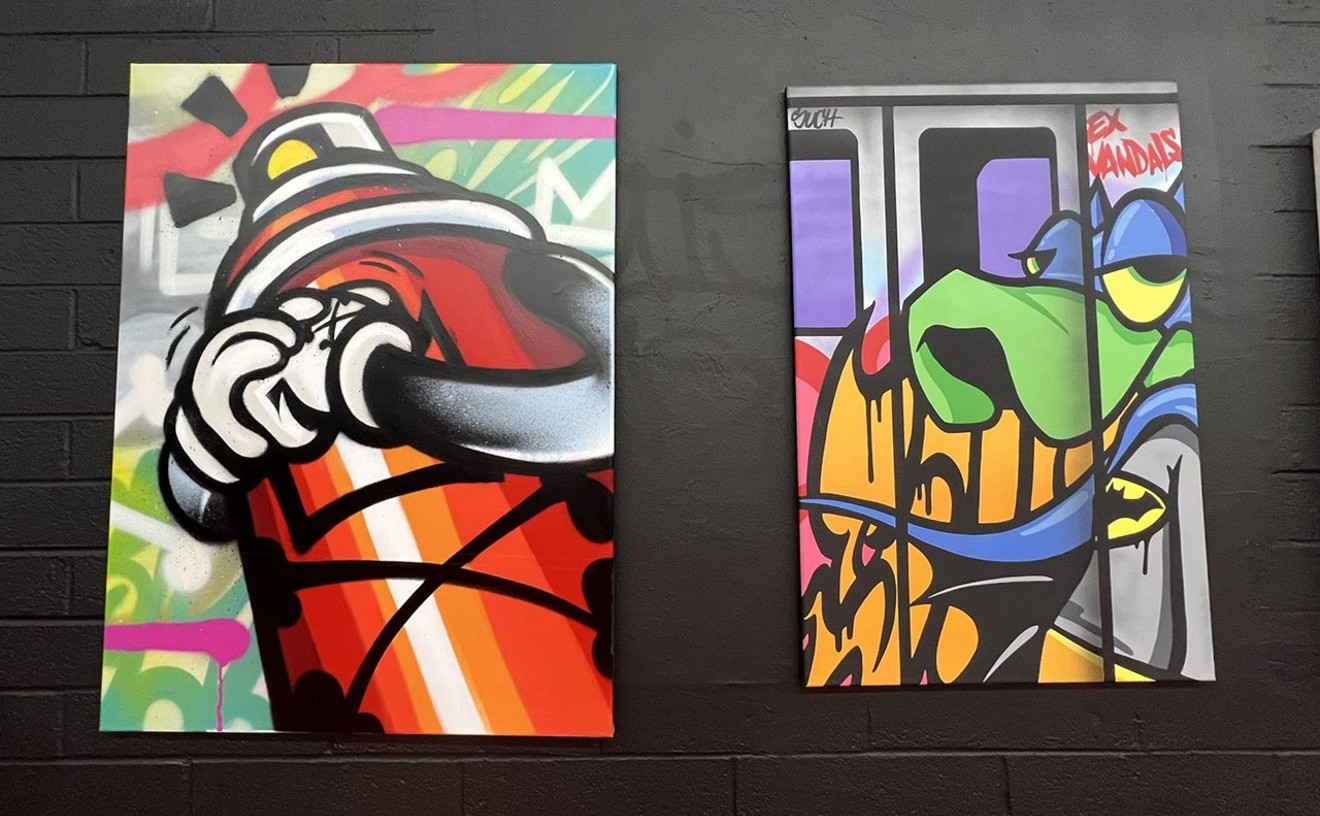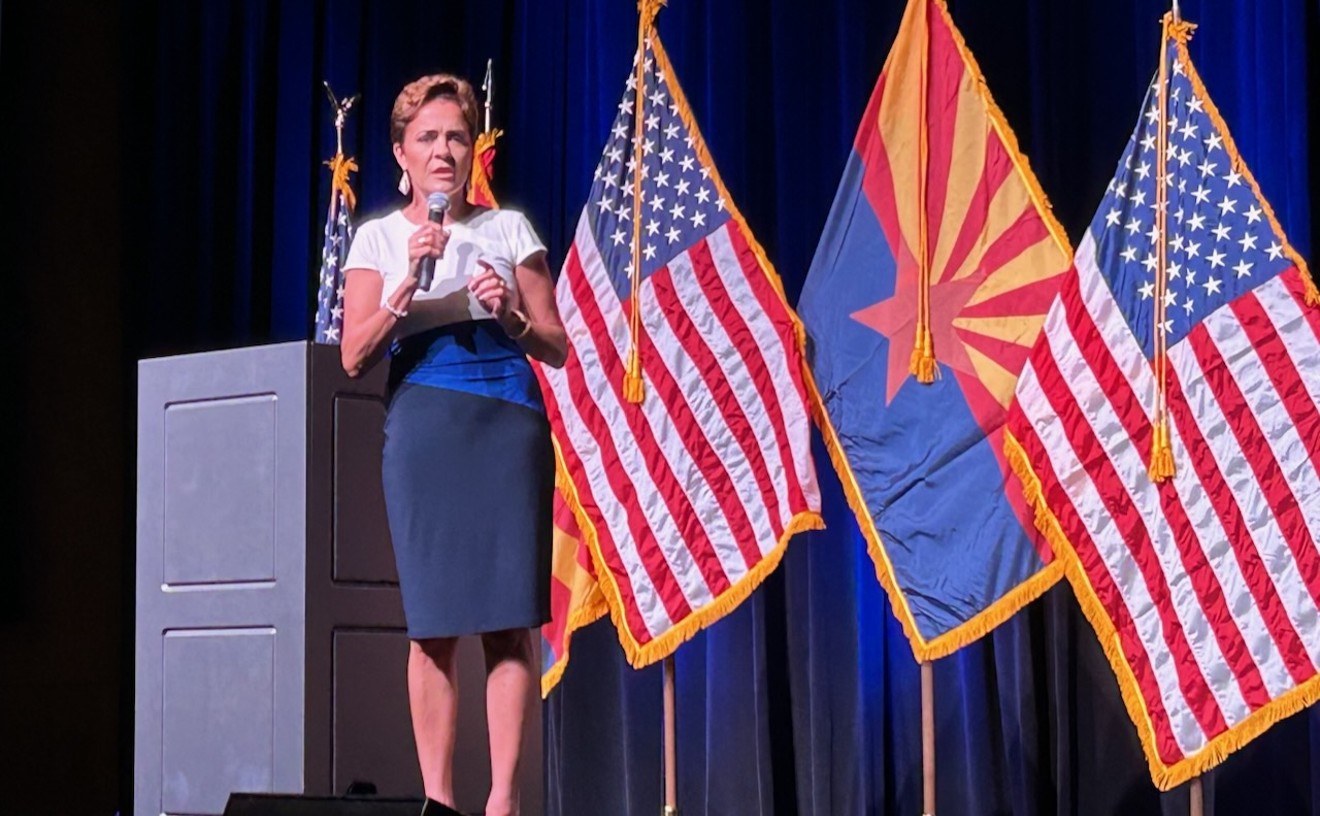They did so, of course, by signing a development agreement with Western Electric in 1926 to form the Vitaphone Company, with the object of making commercially viable sound films. Three years later, with The Jazz Singer, this dream was realized. Most of Warner Bros. silent films were minor and undistinguished, but after 1929 the studio was established as a major part of pop-culture world history, the place where, for better and for worse, movies learned to talk.
Warner is celebrating its 75th anniversary--it was fully incorporated in April of 1923--with a touring Festival of Classics, which plays from Friday, May 15, through Thursday, May 21, at Harkins Camelview 5, located on Goldwater Boulevard north of Camelback in Scottsdale. Cleverly, each day represents a decade--the '70s on Friday, the '80s on Saturday, the '90s on Sunday, the '30s on Monday, the '40s on Tuesday, the '50s on Wednesday and the '60s on Thursday--with several built-to-last selections from the massive Warner catalogue.
Some of the scheduled films are superior works of art, and of those that aren't, most are nonetheless superior pieces of American craftsmanship--solid, satisfying examples of the studio system at its best. If you love movies, they're worth your time.
My recommendation: See everything Monday. The day starts off with the Al Jolson schmaltzer The Jazz Singer (2 p.m.), which, though largely silent, is usually credited as the first talkie. It was, at any rate, the first movie musical, and it ought to be seen both for historical reasons and for the power of Jolson's performing. Lloyd Bacon's archetypical 42nd Street (4:30 p.m.) of 1933, which became the basis for the Broadway musical, features the dreamlike choreography of Busby Berkeley and Ruby Keeler as the chorus girl who gets to go on when the star hurts her leg. The Adventures of Robin Hood (7 p.m.), a 1938 film with Errol Flynn at his buoyant, funny best in the title role--supported by Olivia de Havilland as Maid Marian, Alan Hale as Little John and Basil Rathbone as the splendid villain Guy of Gisbourne--is probably the best of all swashbucklers, superb for grown-ups or kids. William Wellman's early gangster talkie The Public Enemy, which made a star of James Cagney, isn't the best gangster picture of the period, but it has a chilling final scene, as well as the indelible moment when Cagney shoves the grapefruit into the face of poor Mae Clarke. These older films don't turn up on TV as often as they should and can even be tough to find on rental video. Missing a chance to see them on a movie screen isn't advisable.
You may want to see everything on Tuesday as well. You can't go too far wrong with any of the four films--Mildred Pierce (1:30 p.m.), Now, Voyager (4:15 p.m.), Casablanca (7 p.m.) and John Huston's stunning directorial debut The Maltese Falcon (9:45 p.m.); they're all wonderful. But they're also much more familiar to contemporary audiences, and there's a decent chance you may have caught them on a screen somewhere already. The same holds increasingly true for the other four days--you can safely be more selective.
As a film buff, of course, I can think of less obvious selections that might have made the festival more interesting. Why not throw in a few of the "socially conscious" Warner films of the '30s, like Archie Mayo's 1936 Humphrey Bogart vehicle Black Legion, one of the first films to deal with Klan-style reactionary societies, or 1937's They Won't Forget, loosely based on the Mary Phagan case?
Why not give us George Raft and Bogie in They Drive by Night, the lively 1940 drama about the trucking business, or John Barrymore in the little-known 1930 version of Moby Dick? Instead of the somewhat dated Public Enemy, why not use Angels With Dirty Faces, for my money the most entertaining of the Warner gangster films, as the Cagney entry, and instead of Now, Voyager, why not use the dishy 1938 Jezebel to represent Bette Davis?
Where's Sergeant York? Where's Key Largo? Where's White Heat? Where's Mister Roberts? Where's M*A*S*H and Deliverance? And where the heck is John Huston's triumphant The Treasure of the Sierra Madre of 1948?
Alas, it's unlikely that any of them would do as well as the more popular selections that are being offered; we should be glad for that much bounty. It's frustratingly clear, from the way the schedule is set up, that the newer films are the most potentially profitable.
A manager at Camelview told me that he had heard the Festival of Classics tour wasn't doing especially well in other cities. This biggest draw, according to him, was a selection from the '80s: the director's cut of Ridley Scott's cult favorite Blade Runner (Saturday, 9:30 p.m.). Sigh. Opting for Scott's entertaining but ersatz noir, when the real thing is available in the same festival, is passing up the Silver Screen for the Shiny Plastic Screen.
Warner Bros. Festival of Classics plays from Friday, May 15, to Thursday, May 21, at Harkins Camelview 5, located on Goldwater Boulevard north of Camelback in Scottsdale. Admission is $6 for individual features, $15 for a one-day pass and $50 for a festival pass. Call 222-HARK (222-4275), extension 016 for specific showtimes and information.










